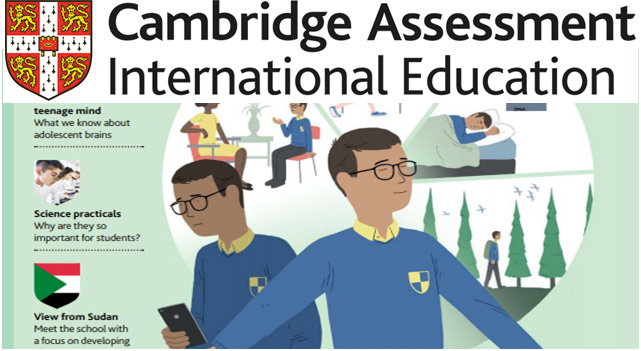Making a difference to mental health and wellbeing
This is the first blog for our website, and before writing it, the biggest problem I was confronted with was the topic I should considered covering as the guiding blog for future contributions in this forum or platform of our nascent website.
I have chosen the topic of wellbeing and its related mental health issues because it cuts across all spheres of our beautiful school life. The topic is discussed very extensively by Lauren Schulz, the editor of Cambridge Assessment International Education’s outlook newsletter in their latest issue dated 12th June 2018.
She starts by highlighting the fact that during the course of herown career as an editor, there have been plenty of times when she had felt under stress at work, either because of the work itself or because hermind has been occupied by something happening in another part of her life. From personal experience over the years, I am sure that as students, teachers, supervisors and principals – as individuals – it is likely that this is familiar to you too.
She goes on to point out that, she is lucky that her employer provides wellbeing support, as well as facilitating workplace yoga and offering flexibility in the working day to allow employees to undertake team sports or go to the gym.
I found it refreshing that Lauren Schulz understood that the same initiatives might not be workable in all teaching environments but with a little ingenuity many of you will have your own school-appropriate initiatives in place.
Taking care of teachers
In order to ensure quality education, a school must deliver grade appropriate and well thought-out lessons in its classrooms. Among many other things, this is achieved when teachers have the right mindset and their well-being is good. Lauren Schulz’s article supports this assertion by sharing insights from the In focus section of the latest issue of Cambridge Outlook magazine, provided by Professor Jonathan Glazzard of the UK’s Carnegie Centre of Excellence for Mental Health in Schools. A brief summary of the article by the good professor highlights how critically important it is for teachers to have healthy minds – warning of the potential impact for students if a teacher’s mental health needs are unsupported.
Apart from sharing Professor Jonathan Glazzard’s article about the importance of a teacher’s wellbeing and the resultant benefits to students when the right healthy environment is created at a school, Lauren Schulz, also sharedwisdom from Kevin Hawkins.
According to http://ibheads.com/speaker/kevin-hawkins/ , Kevin Hawkins is a retired school principal with 30 years’ experience, as an International baccalaureate educator specialising in the middle years program (MYP). The wise tips Lauren Schulz sharesfrom Kevin Hawkins mindfulness training for schools are centered on the fact that sometimes, it’s the small things that make all the difference such as: stop and breathe; feel your feet; play with posture and prepare to sit.
Taking care of teenage students
At WSIC, we have a vibrant teenage population and Lauren Schulz addresses their wellbeing needs as adolescents, by appreciating the facts that they are experiencing many situations for the first time so the stress that can come with some of those situations is new to them. They are still learning to understand their emotions – emotions that are ever-changing in a highly dynamic environment in today’s society.
In particular, “teenagers are in a maelstrom of change”, as author Nicola Morgan puts it. Her expert books and guides are designed to arm students, their teachers and parents with the knowledge they need to help them understand the teenage brain and in turn try to manage their stress.

Source:Cambridge Outlook magazine12.06.18Head teacher Howard Thomas and students from The British School of Córdoba
Lauren Schulz putting together this article by interviewing the staff of three very different schools in the Cambridge international community to find out what student wellbeing means to them. Their inspiring ideas can be found here.
By William Ombongi, Vice President – Education & Applied Research
20180627





























